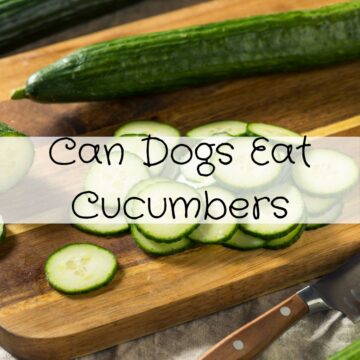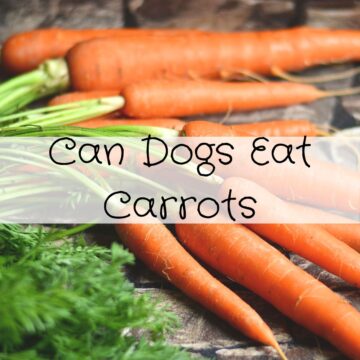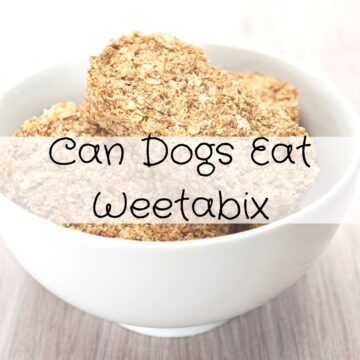Butternut squash is a popular vegetable known for its sweet and nutty flavor, vibrant orange flesh, and numerous health benefits for humans. But what about our canine companions? Can dogs eat butternut squash?

Jump to:
Nutritional Benefits of Butternut Squash for Dogs
Feeding your dog cooked butternut squash in moderation can provide several nutritional benefits:
- Vitamins and Minerals: Butternut squash is rich in essential vitamins like Vitamin A and Vitamin C, as well as minerals such as potassium and manganese. These nutrients support your dog's overall health and immune system.
- Fiber: Butternut squash contains dietary fiber, which can aid in digestion and help regulate bowel movements.
- Antioxidants: The antioxidants in butternut squash can help reduce inflammation and protect your dog's cells from damage.
- Low in Calories: Butternut squash is a low-calorie food, making it a suitable option for dogs who need to manage their weight.
- Beta-Carotene: Butternut squash is a rich source of beta-carotene, a type of carotenoid compound that belongs to the family of pigments known as provitamin A. Beta-carotene is a powerful antioxidant, and it is particularly well-known for its role in supporting eye health and overall immune function.
Remember to go slowly when introducing new foods. And we recommend checking with your veterinarian first if your dog has any digestive issues or other health concerns.
Can Dogs Eat Raw Butternut Squash?
While dogs can technically eat small amounts of raw butternut squash, it's not recommended. Raw butternut squash can be challenging for dogs to digest due to its tough texture and high fiber content. Consuming large quantities of raw squash may lead to digestive upset, including diarrhea or stomach discomfort. Therefore, it's best to avoid feeding your dog raw butternut squash and opt for cooked or steamed varieties instead.
Can Dogs Eat Butternut Squash Skin?
The skin of butternut squash is generally safe for dogs to consume, but it can be tough and difficult for some dogs to chew and digest. To make it easier for your dog, you can peel the skin before offering them the squash. Additionally, be mindful of any pesticides or chemicals that may be present on the skin; it's always best to wash the squash thoroughly or choose organic varieties when feeding it to your dog.
Can Dogs Eat Butternut Squash Seeds?
Butternut squash seeds are generally safe for dogs to eat, but they should be consumed in moderation. Like with many seeds, overeating them can lead to digestive issues or blockages. To safely offer butternut squash seeds to your dog, you can roast them without any added salt or seasonings, and then crush or grind them into smaller pieces. However, it's important to keep the quantity small to avoid any potential digestive problems.

Can Dogs Eat Cooked Butternut Squash?
Yes, dogs can eat cooked butternut squash, and it is often a better option than raw squash. Cooking or steaming butternut squash makes it softer, easier to digest, and less likely to cause digestive upset. It also enhances the flavor, making it more appealing to your dog. You can serve cooked butternut squash in small, bite-sized pieces as a healthy treat or mix it in with their regular dog food to add some variety to their diet.
Can Dogs Eat Frozen Butternut Squash
Frozen butternut squash can be safe for dogs to eat, provided it is thawed and cooked before serving. Freezing does not significantly affect the nutritional value of butternut squash. Thaw the frozen squash and cook it to soften it before feeding it to your dog, as raw frozen squash can be difficult for them to digest.
How to Serve Butternut Squash to Dogs
Butternut squash can be a nutritious and tasty addition to your dog's diet when prepared and served correctly. While they can eat small amounts of raw squash, it's best to offer them cooked butternut squash, peeled and without any added seasonings.
Serving butternut squash to dogs is a nutritious and wholesome way to provide them with additional vitamins, minerals, and dietary fiber. Here are some safe and simple ways to serve butternut squash to your dog:
- Cooked Butternut Squash: Steam or boil butternut squash until it becomes soft and tender. Avoid adding any seasonings or spices, as they can be harmful to dogs. Let the cooked squash cool before serving it to your dog.
Cut the squash into bite-sized pieces that are appropriate for your dog's size. Smaller dogs may need smaller pieces. - Mashed Butternut Squash: Mash cooked butternut squash with a fork or potato masher until it reaches a smooth consistency.
Serve a small portion of mashed butternut squash as a side dish alongside your dog's regular food. - Mixed with Dog Food: Add a small amount of cooked butternut squash to your dog's regular kibble. Mix it in with their food to provide added nutrients and flavor.
- Homemade Butternut Squash Dog Treats: Add cooked mash butternut squash with egg and wheat flour. Work into a dough and bake.
- Frozen Butternut Squash Treats: Puree cooked butternut squash and freeze it in ice cube trays. Once frozen, you can offer these small butternut squash cubes as a refreshing and chewable treat during hot weather.
Remember that while butternut squash can be a nutritious addition to your dog's diet, it should complement their regular dog food, not replace it.






Leave a Reply